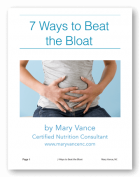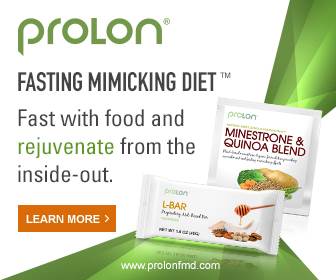Do you count calories or fat grams to lose weight? Is a calorie just a calorie? You may have recently read about the nutrition professor who lost 27 pounds by eating twinkies and junk food. His point is basically that one loses weight by cutting calories–no matter where they come from.
While it’s true that cutting calories leads to weight loss, but where calories come from counts more. This professor’s cholesterol dropped, which probably is a result from him simply dropping weight and reducing inflammation, BUT long term, this is not sustainable and certainly not healthy. Of course there is a difference between calories from organic protein, fruits, and veggies versus twinkies and junk food. But, as nutritionist and personal trainer to the stars JJ Virgin says, “The body isn’t a bank account–it’s a chemistry lab.”
She also says: “There is more to losing weight than merely creating a caloric deficit, especially when you focus on fat loss rather than overall weight loss. Your body is both a chemistry lab AND a history book. Food is information. It can tell your body to burn fat or store it, build muscle or burn it, balance blood sugar or send it spinning!”
What this means is that based on what you eat, certain hormones are released in the body that cause blood sugar imbalance, high cortisol, & fat storage (if you eat refined junk). And if you wait til you are starving to eat and your blood sugar is low, causing you to binge and overeat, you trigger a bigger insulin response. And insulin is the fat storage hormone. Plus, when blood sugar drops, cortisol spikes, also triggering fat storage. If you are eat a diet high in refined carbs like white flour, baked goods, and packaged/processed junk food, you also trigger a bigger insulin response = fat storage. If you’re eating unrefined whole foods meals with veggies and organic protein, and you’re eating regularly–every 4 hours–your insulin will regulate and your body will burn fat rather than store it. Think of it this way: sugar or glucose is your body’s main source of fuel, so if you’re eating a high carb/high sugar diet, even if they are unrefined grains or good carbs, it’s all breaking down into sugar. When your body gets what it need for fuel, it stores the rest. And since this diet triggers a higher insulin response, more is stored. When you focus on protein & veggies, stored fat is burned for energy because you are not providing your body with a lot of sugar.
When you skip meals or wait til you’re starving to eat, your cortisol (main stress hormone) spikes, causing increased fat storage, especially around the middle section. High cortisol can affect your menstrual cycles, cause sugar cravings, and cause bone loss. When you eat matters, too. Late night snackers are more likely to gain weight: eating late or at odd times during the night trigger more hormonal imbalance. Too much ghrelin (the hunger hormone) and not enough leptin (the I am full hormone) are produced.
The best diet for weight loss is organic protein, lots of veggies, 2 servings of fruit daily (or even one), and nuts & seeds. Proteins & good fat are essential for energy & satiety. Eat within and hour of waking, and eat every 4 hours. Stop eating 3 hours before bed, and have your largest meals at lunch & breakfast. This will trigger the proper hormonal response, balance cortisol & blood sugar, and burn fat!

Mary Vance is a Certified Nutrition Consultant and author specializing in digestive health. She combines a science-based approach with natural therapies to rebalance the body. In addition to her 1:1 coaching, she offers courses to help you heal your gut and improve your health. Mary lives in San Francisco and Lake Tahoe in Northern California. Read more about her coaching practice here and her background here.







When i was younger and only cared about how i looked as opposed to how healthy my body was, I lost almost 50 pounds over around 6 months by eating mostly refined packaged foods, which I chose because I could read their labels and easily count calories, and there are lots of “low-fat/low-calorie” options. I got some veggies in there too, but I would definitely say that my body was not healthy at that time. I wasn’t exercising, I was depressed, I was weak, and though I was thin I had very little muscle tone. And, I got to the point where I just could not stand to obsessively count calories and eat food out of boxes, and as soon as I stopped I started gaining all the weight back.
I am nowhere near the weight I was at that time, but I feel ten times healthier than I was then. Whole foods, not food out of boxes, is what I’ve learned from you guys 🙂 XO!
YES! You hit the nail on the head, Jen. Point is, a calorie is not just a calorie and we run best on whole foods fuel. The body doesn’t process lab-made foods well, and the toxins often build up in our tissues, creating even more problems over time. 😉